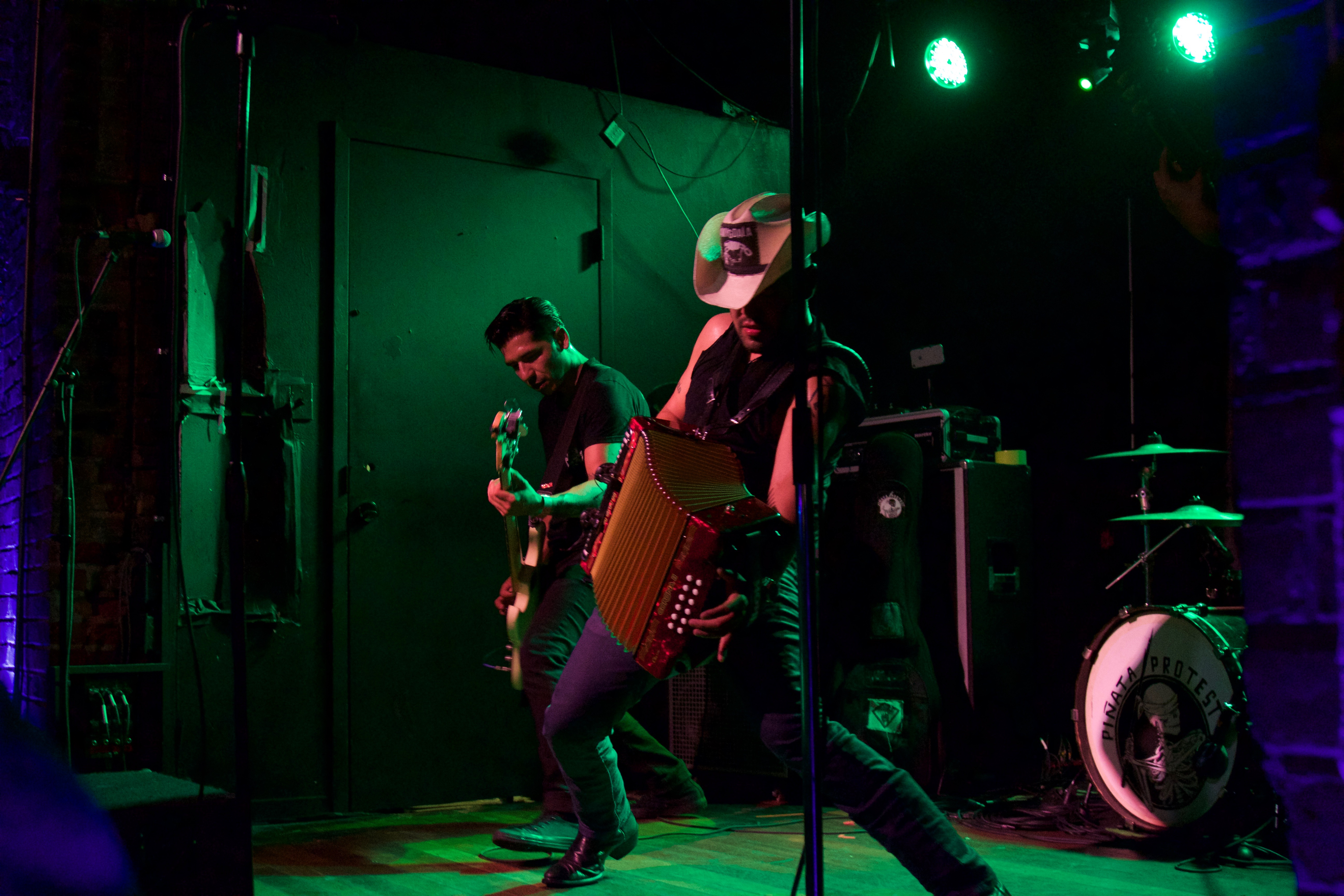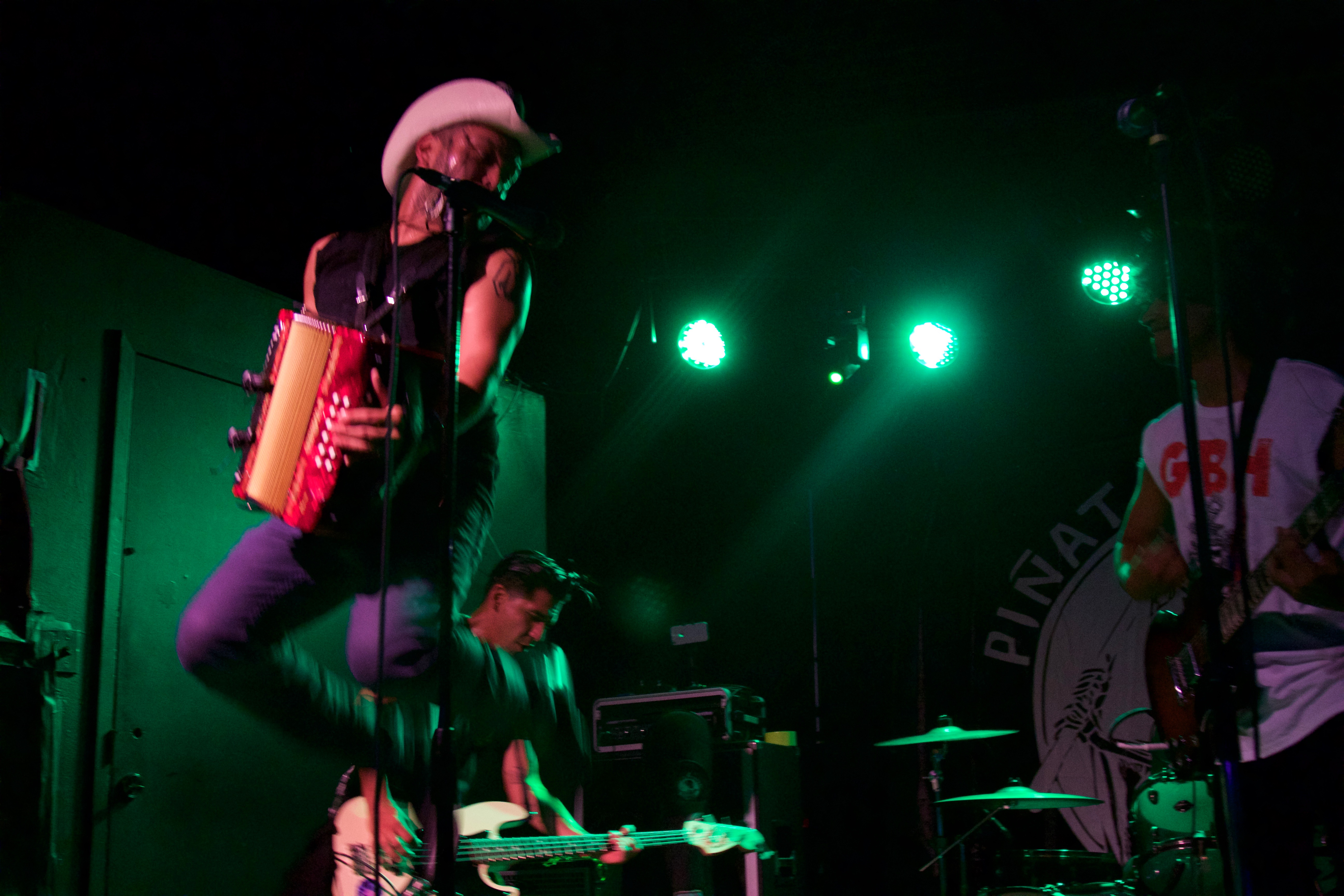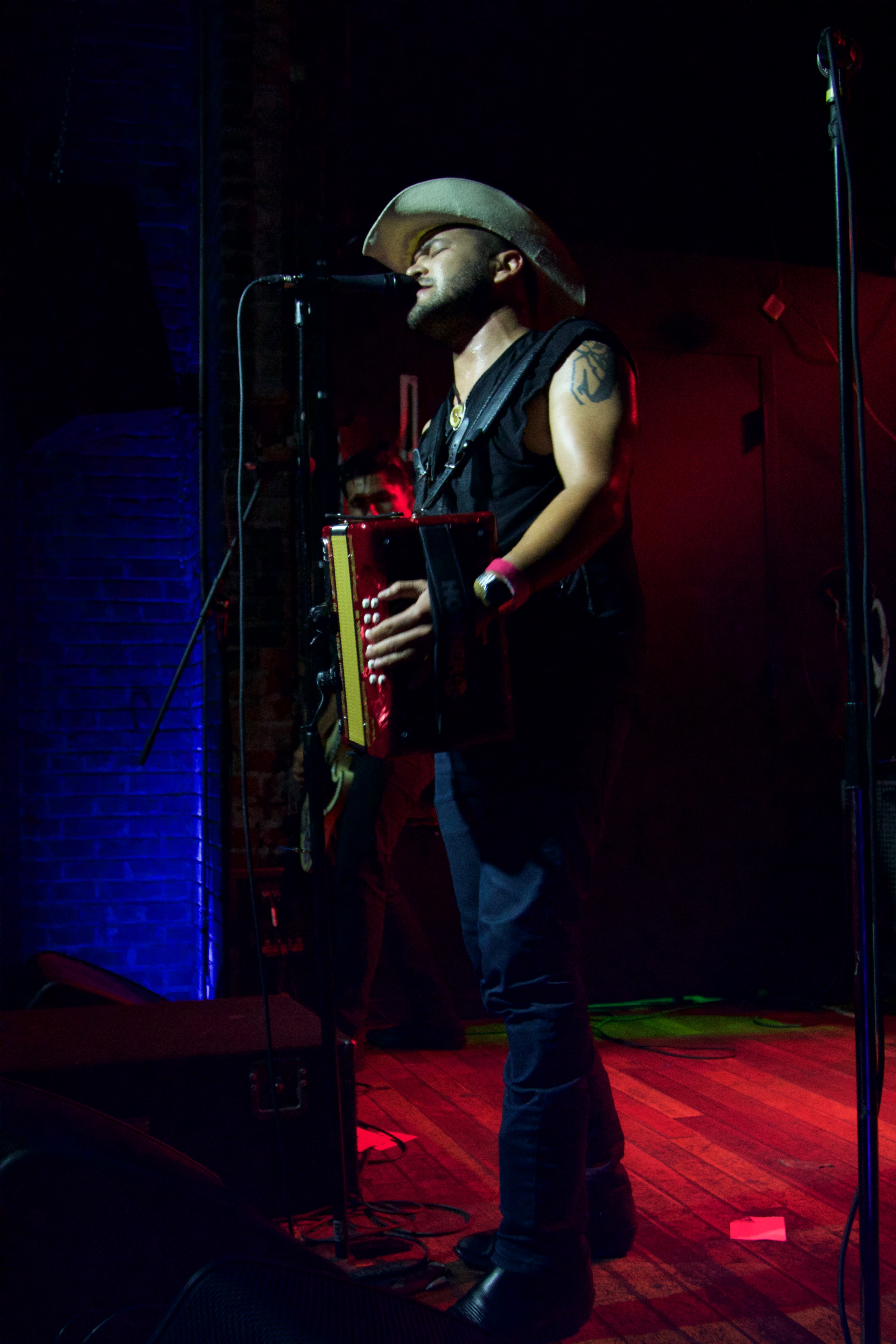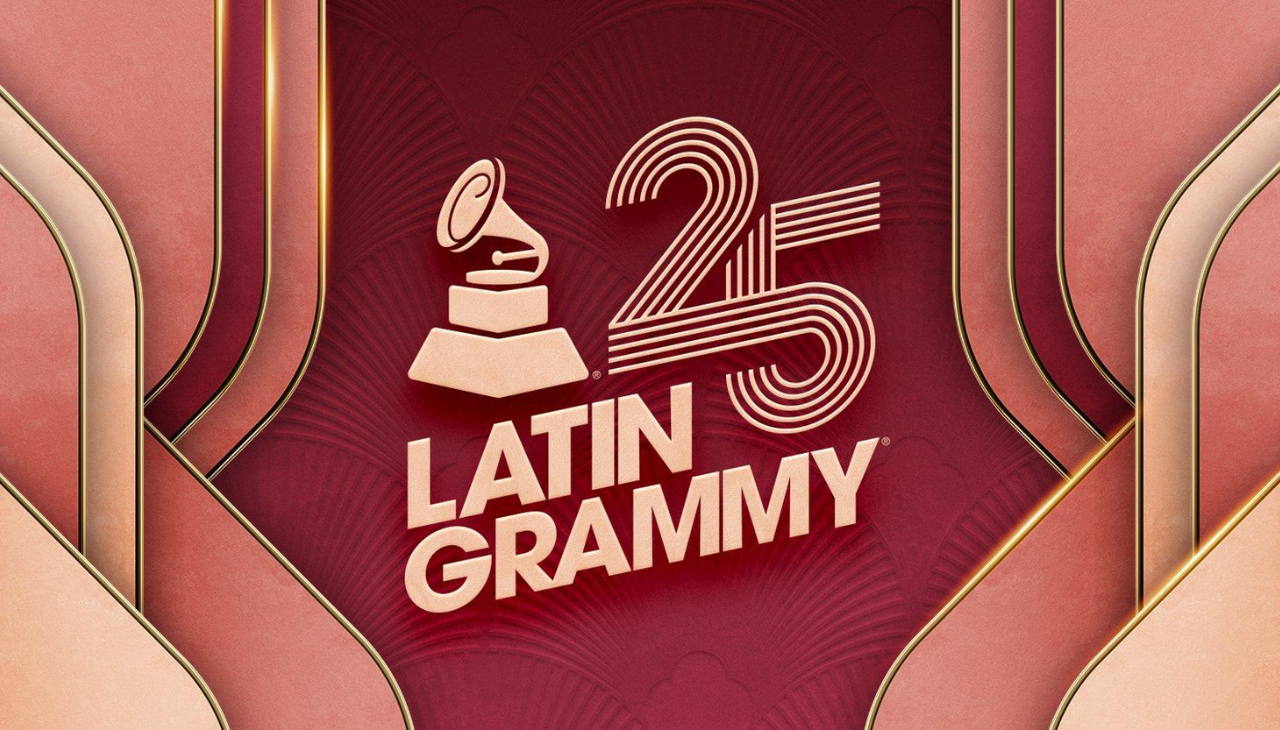
Piñata Protest: Rocking out, ranchero-style
This Tex-Mex punk band is defying expectations and winning fans across the country as they embrace their musical roots from both sides of the border.
It is one of the ironies of human nature that within countercultural movements or scenes there is usually an implicit conformity in rebellion. At a punk show, you expect to see leather jackets, mohawks, tattoos, and musicians shredding on the guitar.
But if you had wandered into the Voltage Lounge last Friday in Philly, you would have seen something a little different from the stereotypical punk rock aesthetic when a guy in a white cowboy hat, accordion strapped around his chest, strolled out on stage.
When Álvaro Del Norte first started recruiting musicians for the band that would become Piñata Protest about ten years ago in his hometown of San Antonio, Texas, some people didn’t think it would work.
“I introduced the idea to people and some people were like ‘That’s a terrible idea,’” Del Norte said. “The ones that thought it was a good idea ended up joining.”
And what those that committed to realizing Del Norte’s vision of an accordion-led, bilingual punk rock band have accomplished has the pure power, energy, and technical brilliance to win over any doubters — as was clear at their energetic show on Friday, which was a stop along the tour they’ve been doing across the country as an opener for the band GBH.
In front of a mostly white, typically outfitted punk audience, Piñata Protest started off with a bang, with Del Norte doing backwards jumps off the amps at the front of the stage, pounding his accordion while shouting out the chorus in Spanish and English to “Vato Perron” (translated essentially to “cool dude” in English) that speaks to a defiant pride for Mexican-Americans: “Vatos perrones, we won’t go away, we’re here to stay, live for today.”
The band itself came into being thanks to Del Norte’s vision for a punk band which would also draw from the norteño, tejano, conjunto, cumbia, and ranchera music of his and his family’s Mexican roots. But when he initially started looking for an accordion player to help make his vision a reality, he couldn’t find anyone.
“That’s how I came to be the accordion player and the singer too,” said Del Norte, explaining that he recruited the rest of the musicians who came to join his band by going to local shows and posting ads on Craigslist. The band now includes guitarist Marcus Cazares, his bassist twin brother Matt Cazares, and drummer JJ Martinez.
“I think this band’s music is a total reflection of what’s going on demographically with this group of people that are coming from Mexico and assimilating with the American culture,” said Del Norte, who got his start in music playing trumpet in the school band — an instrument he still breaks out onstage for certain songs — before beginning his love affair with punk in high school and playing guitar in a band.
“I’m very surprised how it seems like a lot of people are like ‘Whoa!’ They’re freaked out by the mix, but to me it feels like a very natural thing to happen,” Del Norte continued. “That happens all over the world when two cultures meet, they end up creating something different and unique from that,” he said, adding that “rock’n’roll in itself” is a mix of blues and Gospel music.

By making that cultural synergy real, the band has a social and political impact thanks to its very existence.
“At the very least I feel that it’s important to have representation. There’s not a lot of Latino bands in the greater punk rock community, really,” Del Norte noted. “I think that it’s good that we’re out there and especially that our band has such a mix of punk, and our roots, the Mexican roots.”
It isn’t always easy, though, when the band is confronted with prejudice and negative reactions on the road, including one situation that occurred only days prior to their Philly show in Lancaster, PA.
RELATED CONTENT
“We ran into some issues with people talking...about issues about immigrants, Muslims, and what’s going on right now with the border, and the separation of the families,” Del Norte recalled. “We even got criticized at the show for singing in Spanish.”
But, he noted, there is an upside to those encounters.
“The thing about touring is you do get into areas where there’s people who have had no interaction whatsoever with anybody who’s Mexican, and we become that. And it makes a positive interaction,” he said. “I think that’s what this country needs.”

“I love representing who we are and I love being a reminder, like, ‘Hey we’re people who exist in this country as well,’” said Del Norte, remembering a moment when the band was on tour with Reverend Horton Heat that encapsulated that kind of impact.
“This guy came up to us after the show, and he was...really wide-eyed, and he was like, ‘Oh my god, I didn’t know that Mexicans could play like that! I thought you all only played mariachi music,'” Del Norte said.
The musician and songwriter said that breaking those stereotypes when the band plays for new audiences is part of the joy of his work.
“For the first few songs, people are just looking at us like, you know, what the...? What are these guys going to do? What kind of music are they going to play, what's going on? And by the end of the set, we’ll have won the crowd over and everybody's dancing and having a great time and I love that,” he said.
And so it was in Philly on Friday. After a rousing set, chants of “otra, otra” could be heard, and at the very least this audience member walked away uplifted, still dancing, with a renewed hope for the future of this country fueled by the incredible originality of artists like these “vatos perrones.”











LEAVE A COMMENT:
Join the discussion! Leave a comment.